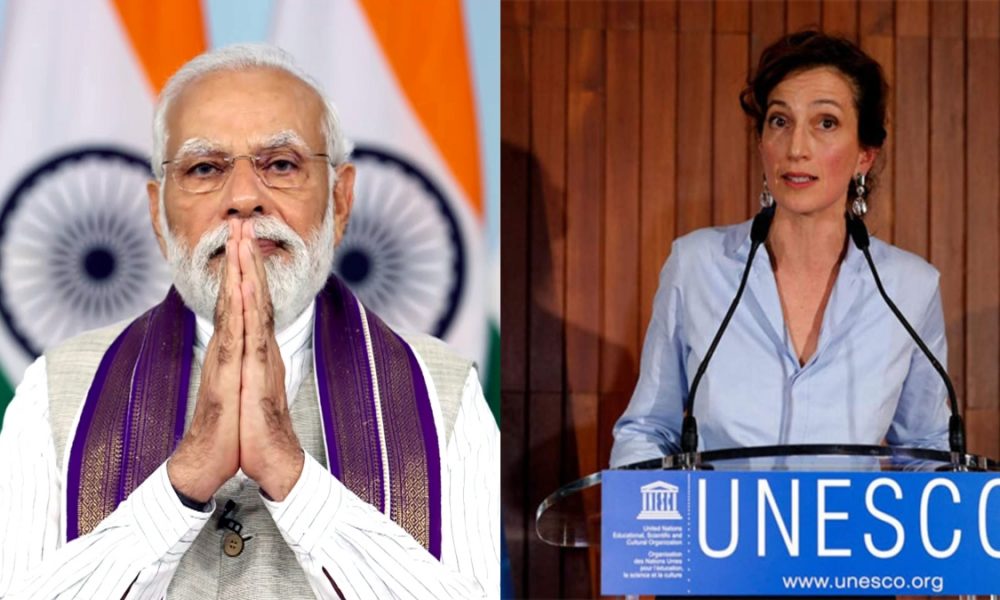
New Delhi: Prime Minister Narendra Modi hosted the 100th episode of his radio show ‘Mann Ki Baat’. United Nations Educational, Scientific and Cultural Organisation (UNESCO) director-general Audrey Azoulay also featured in the episode and talked about education and culture in Indian and global context. She asked PM Modi about India’s path in giving quality education and G20 summit.
On achieving UNESCO’s target to provide everyone with access to quality education by 2030, PM Modi recalled Indians who have selflessly worked in the field of education.
Glad to have @UNESCO DG @AAzoulay ask a very relevant question on education and culture during #MannKiBaat100. Highlighted some inspiring collective efforts happening in India. pic.twitter.com/0t9pAFCpVq
— Narendra Modi (@narendramodi) April 30, 2023
He mentioned late D Prakash Rao, a tea seller whose life’s mission was to educate underprivileged children, Sanjay Kashyap, a digital library owner in villages in Jharkhand, Hemlata NK, who aided e-learning during Covid-19 pandemic.
Mentioning G20 presidency, Audrey Azoulay asked about keeping education and culture as global agenda, to which the Prime Minister replied that these have been ‘favourite’ themes of ‘Mann Ki Baat’.
Talking about culture, PM Modi said from Lakshadweep’s Kummel Brothers Challengers Club to Karnataka’s Kavemshri Ki ‘Kala Chetna’ Manch, Indians have set examples through their letters and in ‘Mann Ki Baat’, there has been a talk about competitions for composing patriotic songs, rangoli and lullaby.
‘Mann Ki Baat’ is an excellent platform for spreading positivity and recognising the grassroot changemakers. Do hear #MannKiBaat100! https://t.co/aFXPM1RyKF
— Narendra Modi (@narendramodi) April 30, 2023
The 100th episode of the radio show was aired on April 30 at 11 am. The programme began on 3 October 2014 and became a mode of the government’s outreach to citizen, where the Prime Minister addressed various social issues.
‘Mann Ki Baat’ is aired in 22 Indian languages and 29 dialects, along with 11 foreign languages including French, Chinese and Indonesian. Studies have shown that the broadcast has connected with about 100 crore people in some or the other way and has brought a behavioural change among many Indians.




